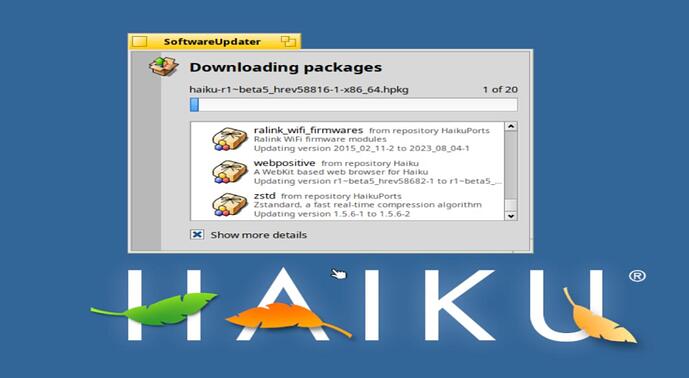Haiku Software Update Failed with no errors.
Also pckman full-sync fails with no errors.
Perhaps is not correct to assume that Software Update Failed because i did not received any errors. I have waited a few days reboot and started again. The last successful update was on: Feb 25, 2025
(upload://h66L7vypse3fNp5Wk2vGmvPaNaR.jpeg)
I’m pretty sure both SoftwareUpdater and pkgman show an error,at least for me they do.
Unfortunately it happens from time to time that broken packages end up in the CDN cache,leading to checksum errors for anyone who tried to install updates until it’s fixed.
I also experienced that today when trying to update to hrev58816.
That is a server-side issue and there’s nothing you can do about it.
Please wait for our admins to clean the CDN cache,then you can try again.
I see, I actually started the update a few weeks ago and today I just tried to check if it works. Even pkgman refresh freeze at Validating checksum for HaikuPorts …
Thanks a lot for confirming that!
mine is hrev58682
I disabled HaikuPorts and software refresh/update completed. Will for admins to clean the CDN cache, thanks again
